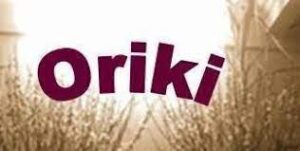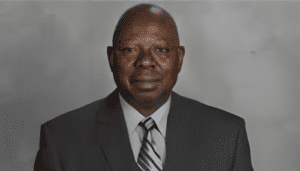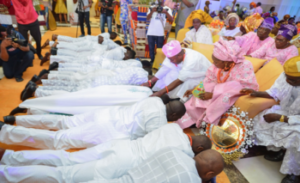
Doctors Migration Bill: Between mobility of labour and national interest
Recently, a bill to amend the Medical and Dental Practitioners Act passed for second reading in the House of Representatives.
Sponsored by Rep. Ganiyu Johnson (APC-Lagos) the bill, among other provisions, seeks to make it compulsory for graduates in medical and dental fields to render services within Nigeria for five years before being granted full license.
The bill is titled: ‘A Bill for an Act to Amend the Medical and Dental Practitioners Act, Cap. M379, Laws of the Federation of Nigeria, 2004 to Mandate Any Nigeria Trained Medical or Dental Practitioner to Practice in Nigeria for a Minimum of Five Years Before Granted a Full License by the Council in Order to Make Quality Health Services Available to Nigeria; and for Related Matters.’
Johnson argued that the bill’s main aim was to address the issue of mass emigration of medical practitioners to other parts of the world in pursuit of greener pasture.
Expectedly, the move has received mixed reactions from stakeholders in the Nigerian health sector.
The Minister of Health, Dr Osagie Ehanire, has thrown his weight behind the bill on the basis that the health sector should retain its best brains for some time before they migrate.
The Minister echoed Johnson’s argument that medical education in Nigeria is heavily subsidised, therefore requiring some form compensation from the beneficiaries.
“If you look at the fact that the fees we pay at our universities, definitely they do not make up for the cost of training.
“So, actually, it means that it is subsidised with taxpayers’ money because if the government allows you to get training for about one-tenth or one-twentieth of the cost of the private university, then it means it is subsidised,” he said.
There is no denying the fact that the migration of health professionals has reached a worrisome proportion since COVID-19.
In 2022, the President of the Nigerian Medical Association (NMA), Uche Rowland, announced that 5,600 Nigerian medical doctors had migrated to the UK alone in the last eight years.
“In 2015, 233 Nigerian doctors moved to the UK; in 2016 the number increased to 279; in 2017 the figure was 475, in 2018, the figure rose to 852.
“In 2019, it jumped to 1,347; in 2020, the figure was 833 and in 2021 was put at 932,” Rowland said.
But the mass exodus does not involve only doctors, neither is the destination limited to the UK.
Other health professionals such as nurses, pharmacists, public health experts, clinical psychologists and laboratory technicians are migrating in droves to destinations in Europe, America and the Middle East.
In this regard, the demonstration of concern by Johnson in proposing a bill to check an impending disaster in the health sector should be commended.
However, the Medical and Dental Consultants Association of Nigeria (MDCAN), while rejecting the bill, said it was discriminatory and not in the interest of the people.
It said the bill erroneously assumes that only newly qualified doctors are emigrating, when, actually, a 2022 survey revealed that over 500 consultants were estimated to have left Nigeria over the preceding two years.
“This bill erroneously assumes the capacity of the government to employ all the doctors for the next five years post qualification.
“This is a capacity that even the most optimistic of analysts know that the government lacks,” the MDCAN said.
Mr Dipo Gbenga, a public health expert who recently relocated to the UK, agreed with the MDCAN.
“There is also mass migration among other health professionals such as nurses, pharmacists and even lab technicians.
“Apart from the health sector, do you know how many ICT experts have left Nigeria? Many of the hitches experienced in service delivery in the financial sector are a result of the mass migration of banks’ IT staff.
“The argument that studying medicine in Nigeria is subsidised is also a mere fallacy. Have you seen our labs? Medical students in Nigerian public universities pay for what they get.
“Medical students pay tuition and later join the demoralising labour market just like other students. So, the issue of subsidy is merely in the heads of those pushing it,”he said.
The Chairman, Senate Committee on Health, Dr Ibrahim Oloriegbe, said the legislature could not be seeking legal redress through an illegal procedure, as the bill violates the rights to freedom of movement and freedom from discrimination as guaranteed in the constitution.
“It is my considered opinion that resolving the challenge of brain drain in the country’s health sector cannot be achieved through this bill.
“Rather, we need to address the various factors that make skilled health workers desire to migrate out of Nigeria,” he said.
Experts say one of the factors responsible for mass migration among skilled health workers is the poor funding of the health sector.
The allocation of 5.75 per cent (or N1.18 trillion) of the 2023 national budget to the health sector, although an improvement on the previous year’s budget, it is a far cry from the minimum requirement.
The AU, in its Abuja Declaration of 2001, set a target of at least 15 per cent of their yearly budget to improve the health sector.
Stakeholders also argue that politicians and government officials who have made medical tourism a habit lack the moral conviction to prevent skilled health workers from seeking greener pastures.
They argue that migration is a human instinct that makes the mobility of labour a natural phenomenon.
Experts say rather than attempting the use of legislation to mitigate brain drain, improving living and working conditions by governments, as well as political and economic stability, can go a long way in addressing the situation.



